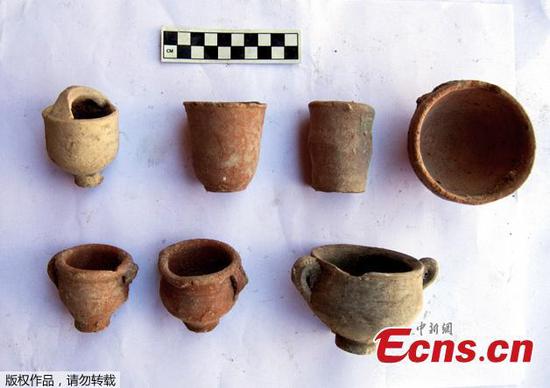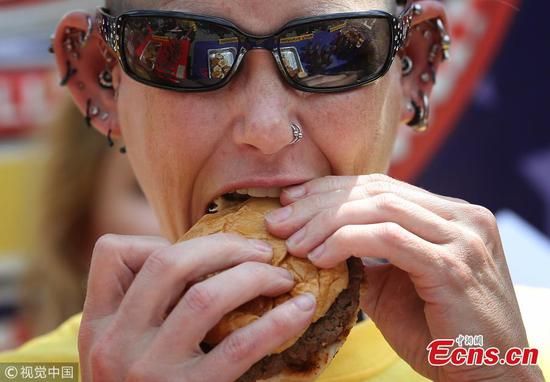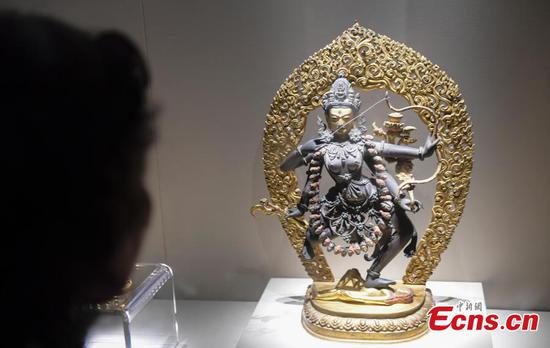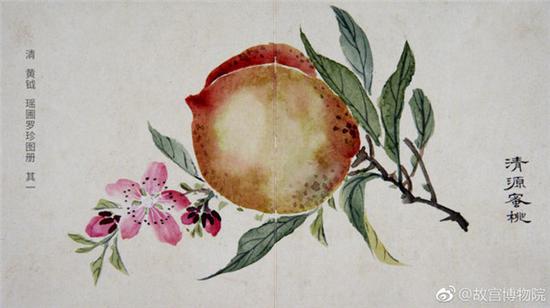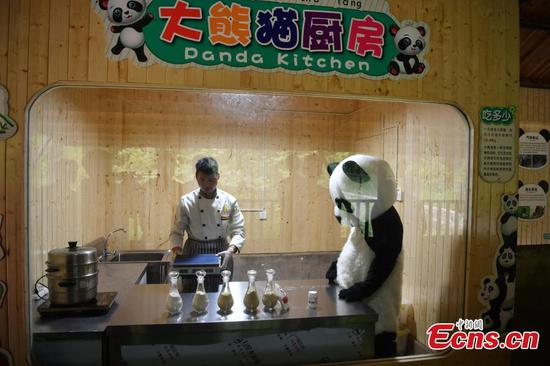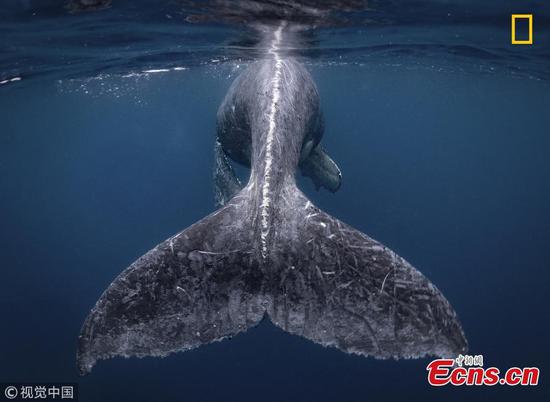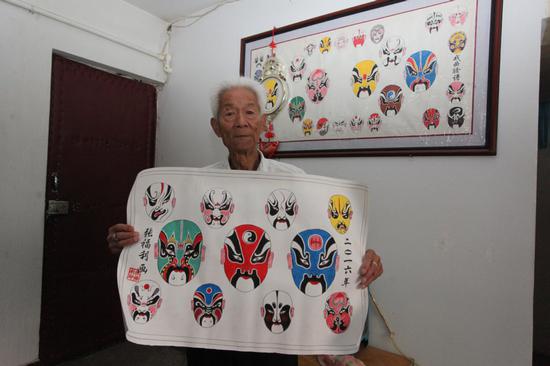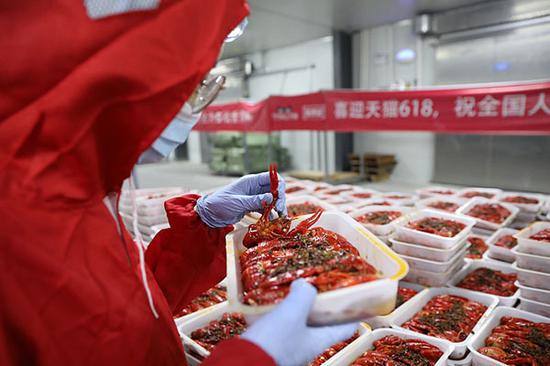
Qu Yunxiao, a professional taster and crawfish quality supervisor in Xinliangji, a crawfish processing company in Hubei province, has checked tens of thousands of crawfish every day since the kick off of the FIFA World Cup amid the peak sales season for crawfish around China.(Photo provided to China Daily)
Just like taking perfume breaks between smelling different coffee beans in order to distinguish each separate flavor, Qu and her colleagues need to rinse their mouths using milk and pure water to cleanse their palates and increase their sensitivity for the next evaluation.
She said a superior sense of taste alone would not get her very far as a professional taster if she cannot properly express her findings in a report.
"For example, I cannot just say this batch tastes 'bad'. I need to say 'it's a harsh bite or overly tongue-numbing'," she said. "Learning how to describe the foods and their attributes is a key part of the role."
At home, crawfish have become a firm match-day favorite among young soccer spectators. Since the games started on June 14, a total of 100 million crawfish have been sold via delivery company Eleme Inc, online supermarket Tmall, and restaurants tracked by local services portal Koubei, according to data from Alibaba Group Holding Ltd, which owns the platforms.
Consumers spent on average 320 yuan ($48) for each crawfish order, data from Koubei showed. Diners born in the 1980s and 1990s contribute nearly 80 percent of late night dining expenses, most of which goes toward cooked crawfish.
The agriculture ministry said the fanfare reflects the booming business-from production to deliveries and restaurant dining-that was worth 268.5 billion yuan last year, representing 70 percent of all crawfish output worldwide.
For the monthlong soccer bonanza, Qu often works until 2 am. She consumes as much as 2.5 kilograms of crawfish on a daily basis, so much so that she confessed she avoids eating them during her leisure time-if she has any at all.
Xinliangji now employs about 50 professional crawfish tasters like Qu, who can earn the highest annual income of 600,000 yuan.
"It is beyond simply the sensory examination and evaluation of crawfish," the company said. "Qualified tasters need to command knowledge in culinary skills, product control and supply chain management. It's difficult to hire such talents."











